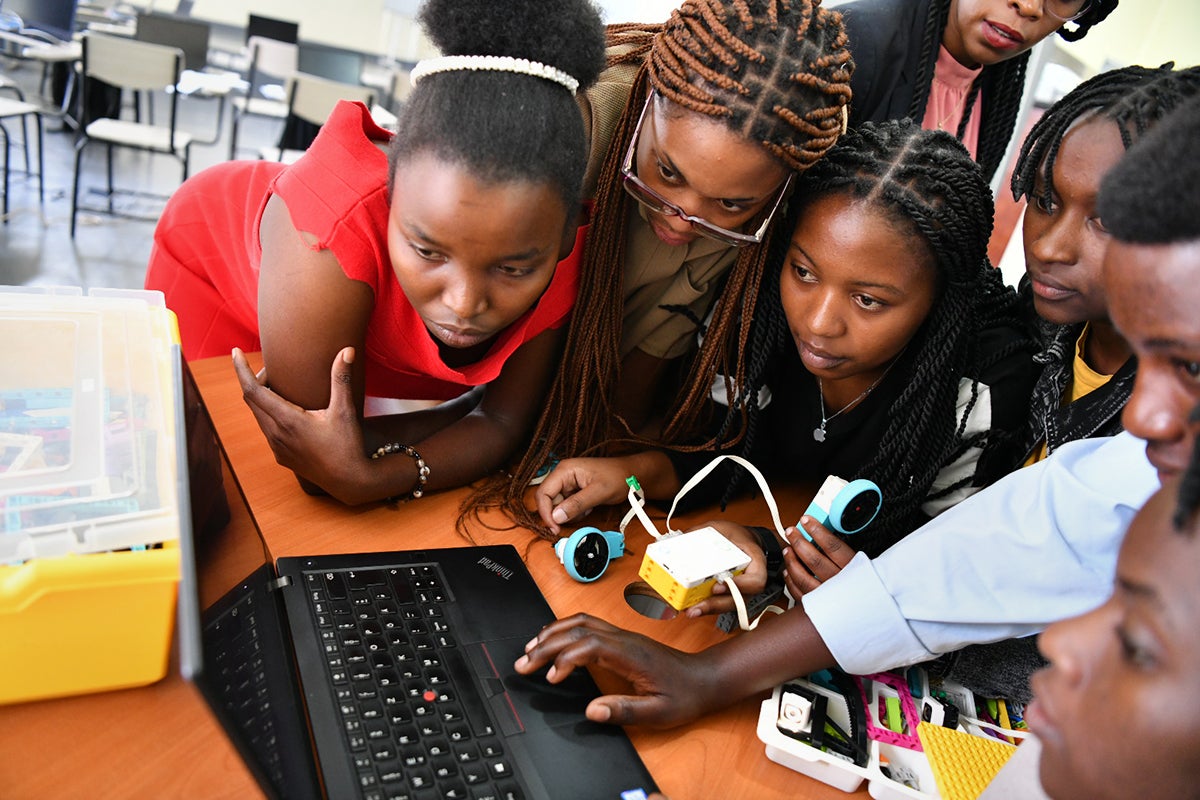Science, technology, and innovation continue to radically and rapidly transform how people live, socialize, pay their bills, order food, study, and work. For women and girls across the world, these changes have brought new freedoms, new forms of access to information, and new opportunities for creativity, along with new risks to their safety, representation, and share of decent employment.
UN Women statement for the International Day for Women and Girls in Science

The promise of science is one of positive change for gender equality. Take the case of Natacha Sangwa, one of a number of young high school graduates in Rwanda who attended a UN Women-supported coding camp. Using robotics and next-generation technologies, she created a prototype to help her community respond to climate change. She told us: "One of the ideas I developed through this programme was to build a mechanized irrigation system to enhance productivity and yields in rural areas" and that she had resolved to do all she could to increase the representation of women and girls in technology.
Over the next 30 years, the majority of the world's new workers may well be on the African continent, where 60 per cent of the population, like Natacha, is currently under 25. Skills in science, technology, engineering, and maths (STEM) will play an important role in the jobs of their future - and across the world. We need to invest in this opportunity - in young women in every country - ensuring that they have the right skills for these jobs and that they are not held back by negative stereotypes and discrimination. And we need to ensure that current and future workplaces are environments that attract, retain, and advance women scientists.
Both representation and retention of women are essential for the science and digital technology sectors to be more creative, innovative, and profitable, reflecting issues that matter to women. Currently, women remain significantly underrepresented, making up just 29.2 per cent of all STEM workers, compared to 49.3 per cent across non-STEM occupations. Hostile work environments remain pervasive and deter women's career longevity. A 2022 study conducted in 117 countries found that one in two women scientists reported experiencing sexual harassment at work, with 65 per cent of respondents reporting that this negatively impacted their career.
Partnerships and engagement that change these workplace issues represent a huge opportunity to boost women's participation in STEM, with the private sector currently estimated to represent approximately 70 per cent of global expenditure on science. The Women's Empowerment Principles offer a framework for just such an engagement among private sector companies, in collaboration for progress with governments and academia. Currently, more than 9,200 CEOs across 160 countries have committed to implement policies and practices that attract, retain and promote women into leadership positions, including in science and broader STEM fields, fostering an inclusive corporate culture, eliminating stereotypes and discriminatory practices.
As we head towards the UN's Summit of the Future in September this year, including a new Global Digital Compact, we must take every opportunity to act quickly and effectively to counteract bias and discrimination, and to equip and support the bright minds and imaginations of our young scientists, like Natacha and her peers.






